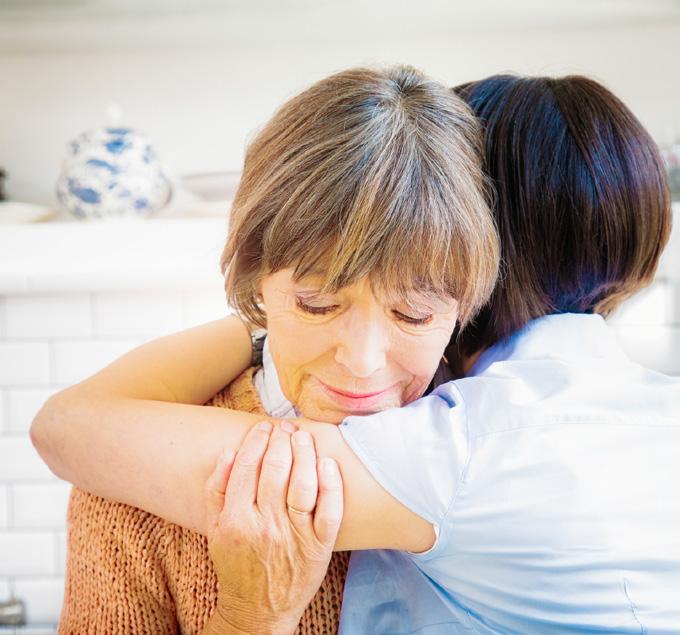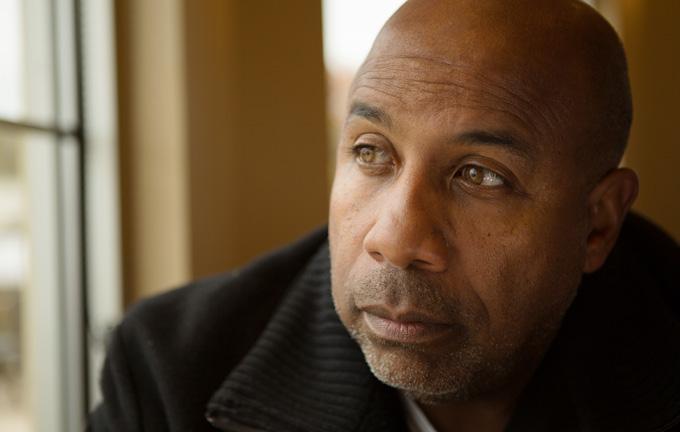Life After Loss: Understanding Your Grief Journey

Village
Masonic
Hospice

2
Table of Contents
......................................................................................
......................................................
....................................................................................
.................................................................................
..............................................
.......................................................
.....................................................................................
.......................................................................................................p.
Understanding Your Grief
p. 3 Things to Expect in Your First Year of Grief
p. 4 Natural Responses to Grief
p. 6 Common Myths About Grief
p. 7 Things That Can Help You Through Your Grief
p. 8 Tips for Surviving the Holidays as a Family
p. 9 Recommended Literature
p. 10 Grief Resources
12
Your grief journey is unique to you. Give yourself permission to grieve, and remember, Masonic Village Hospice can provide additional bereavement support, should you need it.
UNDERSTANDING YOUR GRIEF
It has been an honor to care for your loved one throughout their hospice journey. Now, we are honored to support you, as you navigate through the grieving process. While there is no “perfect handbook,” it is our hope this booklet can aid you in your grief journey.
Overcoming grief is not about forgetting, but remembering. It is not about moving on, but finding a new way to live. Masonic Village Hospice offers bereavement support through individual and group sessions, newsletters, personal phone calls, annual remembrance events and more. These services are available to our families at no charge.
There is no “right” way to grieve.
Your grief will come in waves and have its own schedule. It can be long or short, intense or mild. Your grief will be individual and dependent upon the meaning of your loss (who you’ve lost), your own personal characteristics, the type of death your loved one experienced (sudden or anticipated), your social support (family members and friends) and your physical and emotional state.
Grief can bring an intense amount of emotion that will surprise you and those around you. However, once you identify how you grieve and your grief triggers, you can normalize your feelings and find ways to work through and enhance your grief journey.
3
THINGS TO EXPECT IN YOUR FIRST YEAR OF GRIEF
While no two grief journeys are the same, these are common things many of our family members experience during their first, usually most difficult, year of grief.
Expect the Unexpected Sometimes, when we lose a loved one, we set expectations for ourselves in regard to our grieving process. We think we will feel a certain way for a certain number of weeks or months, then make ourselves believe we are done grieving. The truth is, grief doesn’t abide by our expectations or the expectations of those around us. The way we love is highly individualized, and so, too, are our grieving experiences. While you cannot put a time cap on your grief, you can become aware of the common signs, symptoms and some remedies, so you will not be left feeling lost in your journey.
Expect to be Physically and Emotionally Exhausted
Grieving is the most difficult thing you will ever do, and it is particularly hard on the body. It is common to experience difficulty sleeping, a lack of interest in eating and a weakened immune system when you are grieving (see p. 6 for other natural grief responses). It is important to tell your primary care provider about your loss and report any physical symptoms you may be experiencing. It is also common to feel disrupted as you return to daily activities after your loss. Grieving people often report feeling less able to concentrate in the workplace and even apathetic about their careers or things they once enjoyed. Pay attention to your emotional energy from day to day. For example, it may be more beneficial on anniversary dates to take a day off rather than go to work or plan a busy schedule. It's also important to identify the difference between grief and a more serious, lasting depression, in which case, you should consult with a medical professional. Be aware of your needs before you put others before your grief and self-care.
4
Expect Grief "Triggers”
It is common to experience unexpected reactions to simple, everyday events when you are grieving. For example, one of our family members told us she burst into tears opening a can of soup one evening because she realized it was her deceased husband’s favorite brand. These moments of unexpected emotional outbursts are often referred to as “grief triggers.” These triggers can come in a variety of forms: a song played on the radio, a phone message reminding your loved one of an appointment, the smell of your loved one’s perfume or cologne or a special holiday - all can bring intense emotions of grief. While we might find ourselves wanting to hide our pain in these moments, the emotional release they bring can help us to heal.
Expect “Could Haves” and “Should Haves”
It is natural for individuals grieving a loss to feel as if something was left unresolved. You may, for example, feel you did not have a chance to say goodbye to your loved one. You may not have had an opportunity to extend or receive forgiveness from your loved one. You may believe your loved one’s death could have been prevented or their life could have been extended, and you were responsible for the results. It's very important to share these feelings of regret and guilt with a non-judgmental friend, family member or professional.
Expect Existential Questions
Any kind of loss causes us to re-examine what we believe about how the universe operates. Grief makes us question ourselves and our beliefs, at times. While your faith or belief system may bring you comfort after your loss, you may also feel angry or disconnected from it. It's perfectly okay to question what you believe, and it is absolutely okay to be angry at the world around you. It's important not to act out on your anger in an unhealthy way. You may find healing in being with others who are also questioning the meaning of their life and losses. Reaching out to a spiritual advisor, pastor or church for additional spiritual support may be beneficial to your grief journey.
5
NATURAL RESPONSES TO GRIEF
Grief is the combination of all of our reactions to a loss. It affects our entire world: our emotions, our health, our behavior and social life, our thoughts and our spirituality. During this time, try not to cut yourself off from the world, make major life decisions or neglect basic self-care. Grief can present itself in the following ways:

Initial shock, numbness and denial
Sadness and depression, tearfulness and crying
Weight loss
Bodily tensions, aches, nausea and fatigue
Inability to sleep Sense of exhaustion and lack of energy
Anxiety, nervousness, disorganization and forgetfulness
Restlessness and inability to concentrate
Feelings of anger toward those who seem happy and a desire to go back to your "old" way of life
Guilt over something you said or did
Decreased desire for socialization
Replaying memories of the person’s last days, weeks or hours
Vivid dreams Sudden changes in mood
Fear of your own mortality or of losing other loved ones
6
COMMON MYTHS ABOUT GRIEF
These misconceptions about grief can make your grief journey more difficult. The following statements are myths, and overcoming them is an important step in understanding there’s no “right way” to grieve.
Grief should last about a year. All losses are the same.
Women grieve more than men.
You only need to express your feelings to resolve your grief.
Children need to be protected from grief and death.
Grieving is always an intense process. Your friends and family will always offer the best emotional grief support.
The pain will go away faster if you ignore it.
It’s important to “be strong” in the face of loss.
Moving on with your life means you’re forgetting the one you lost.
If you don’t cry, it means you’re not sorry about the loss.
Seeing a grief counselor or attending a support group shows weakness.

7
THINGS THAT CAN HELP YOU THROUGH
YOUR GRIEF
Grief can be sneaky and powerful. You may also be overwhelmed with grief when you’re not expecting it. The following are some ways to help you find your own way to manage your grief.
• Look through old photos, emails or letters from your loved one.
• Find a grief specialist you trust.
• Find a new hobby (such as crafting or music).
• Get outdoors or start an exercise routine.
• Attend a support group or talk to supportive family members or friends. Take comfort in mourning with others.
• Set aside time (even if it's 15 minutes) each day to be alone and give yourself space to grieve and feel the way you want to feel.
• Make a playlist of your loved one's favorite songs.

• Practice yoga or meditation.
• Attend worship: draw comfort from your faith.
• Practice self-care: go to a spa or use aromatherapy.
• Eat your loved one’s favorite food or make a favorite recipe.
• Journal and/or write poetry or letters to your loved one.
• Clean up clutter/ organize your life.
• Volunteer with a cause you and/or your loved one cared about.
• Give yourself permission to have fun with friends or family members without talking about your loved one.
• Read or watch a movie - get lost in other peoples' stories.
8
TIPS FOR SURVIVING THE HOLIDAYS AS A FAMILY
The holidays can be hard after a loss, but they also allow you to create new traditions that honor your loved one while helping you grieve as a family.
Lower your expectations of the holidays.
The holidays will look different without your loved one. It’s okay to change how you celebrate (such as adding a new tradition to honor your loved one). You can, however, keep meaningful traditions like baking cookies or displaying favorite decorations.
Create a new tradition in memory of your loved one. Consider making a memorial ornament, saying a special prayer or playing special music. Plan ahead and communicate with the people you will spend the holidays with in advance to make sure everyone is in agreement about traditions and plans.
Acknowledge your loss and discuss your loved one around the table. Share your memories and what lessons you learned from your loved one. This can create a setting for meaningful conversations. It may also help young children in the family learn things about their loved one that they never knew.
Make some quiet time for yourself. The holidays can be hectic, so make quiet time for yourself. Ask others to help with cooking, shopping or decorating to avoid becoming overwhelmed.
Try to enjoy yourself. Your grief journey will be tough, but there will also be love and joy. Reiterate to yourself and your family that it’s okay to be happy – this doesn’t diminish how much you miss your loved one who isn’t there.
9
RECOMMENDED LITERATURE
• “A Broken Heart Still Beats: After Your Child Dies” By Anne McCraken
• “A Widow’s Story: A Memoir” By Joyce Carol Oates
• “Anxious for Nothing” By Max Lucado
• “Bearing the Unbearable: Love, Loss, and the Heartbreaking Path of Grief” By Joanne Cacciatore
• “Being Mortal” By Atul Gawande
• “Beyond Tears: Living After Losing a Child” By Ellen Mitchell
• “The Body Keeps the Score: Brain, Mind and Body in the Healing of Trauma” By Bessel van der Kolk, M.D.
• “Broken for Good: How Grief Awoke My Greatest Hopes” By Rebecca Rene Jones
• “Can’t We Talk About Something More Pleasant?” By Roz Chast
• “Chase the Rainbow” By Poorna Bell
• “The Crying Book” By Heather Christle
• “Dead Mom’s Club: A Memoir about Death, Grief, and Surviving the Mother of All Losses” By Kate Spencer
• “The End of Your Life Book Club” By Will Schwalbe
• “Grace Disguised: How the Soul Grows through Loss” By Jerry Sittser
• “Grief Day by Day: Simple Practices and Daily Guidances for Living with Loss" By Jan Warner
• “Grief is a Journey: Finding Your Path Through Loss” By Dr. Kenneth Doka
• “Grief is a Thing with Feathers” By Max Porter
• “Grief Unveiled: A Widow’s Guide to Navigating Your Journey in Life After Loss" By Sarah Nannen
• “Grief Works: Stories of Life, Death, and Surviving” By Julia Samuel
• “Grieving: A Beginner’s Guide” By Jerusha Hull McCormick
• “H is for Hawk” By Helen Mcdonald
10
• “I’m Grieving As Fast As I Can” By Linda Feinberg
• “Is There Space for Me? Embracing Grief Through Art” By Dr. Ron Bell, Jr.
• “It’s Ok That You’re Not Ok” By Megan Devine
• “Journey Through Grief” By Dr. Alan D. Wolfet
• “Let’s Talk About Death (Over Dinner)” By Michael Hebb
• “The Light of the World: A Memoir” By Elizabeth Alexander
• “The Long Goodbye: A Memoir” By Meghan O’Rourke
• “Mindfulness for Prolonged Grief” By Sameet M. Kumar, Ph.D
• “Motherless Daughters: The Legacy of Loss” By Hope Edeleman
• “My Wife Said You May Want to Marry Me: A Memoir"
By Jason B. Rosenthal
• “The Narrow Door: A Memoir of Friendship” By Paul Lisicky
• “Pour Your Soul” By Mira Ptacin
• “Say Her Name: A Novel” By Francisco Goldman
• “Silent Grief: Living in the Wake of Suicide”
By Christopher Lukas and Henry M. Seiden
• “Slow Motion: A Memoir of Life Rescued by Tragedy” By Dani Shapiro
• “Surviving the Death of a Sibling: Living Through Grief When an Adult Brother or Sister Dies” By T.J. Wray
• “Swimming in a Sea of Death: A Son’s Memoir” By David Rieff
• “Turning My Mourning into Dancing” By Henri Nouwen
• “Undying: A Love Story” By Michel Faber
• “The Unspeakable Loss: How Do You Live After a Child Dies?”
By Nisha Zenoff
• “The Way Men Heal” By Thomas R. Golden
• “Widow’s Words: Women Write" By Nan Bauek Maglin
• “The Year of Magical Thinking” By Joan Didion
• “You Can’t Do It Alone: A Widow’s Journey Through Loss, Grief and Life After" By Maria Whitesell
11
GRIEF RESOURCES
Masonic Village Hospice offers bereavement support through individual and group sessions, newsletters, personal phone calls, annual remembrance events and more. These grief resources and websites can offer additional support unique to your situation.
AfterTalk
An online grief support site offering inspirational stories, poems, quotes and forums about grief.
American Association of Retired Persons (AARP)
Offers an extensive list of grief and loss articles, plus a list of local and national organizations offering grief support.
Camp Widow
Created by widowed people, for widowed people, this website provides a wealth of information about weekend gatherings of widowed people from across the country and around the world.
Center for Loss & Life Transition
An online bookstore, newsletter and articles provide helpful information. The Center is directed by Dr. Alan Wolfelt, known worldwide for his compassionate messages of hope and healing in grief.
Centering Corporation & Grief Digest Magazine
Offers online resources to serve the needs of those healing from loss.
The Compassionate Friends Guides families toward the positive resolution of grief following the death of a child of any age.
The Dougy Center for Grieving Children and Families
The first center in the United States to provide peer support groups for grieving children. They share with you what they have learned from more than 13,500 children, teens and families who they’ve served since 1982.
Family Lives On Foundation
Brings joy and comfort to grieving children, teens and their families by helping them continue cherished family traditions.
12
Fernside: Supporting Children and Families Through Grief
Offers a newsletter and other materials for professionals and families to guide and support those grieving or working with grieving individuals.
Gift From Within
A nonprofit organization dedicated to those who suffer from posttraumatic stress disorder (PTSD), those at risk for PTSD and those who care for traumatized individuals.
Grief Healing
Provides many topic-specific articles about grief as well as Grief Healing Discussion Groups. The discussions are facilitated by a professional grief therapist, and the website offers a wealth of helpful grief information.
GriefNet
Internet community of persons dealing with death, grief or major loss, with close to 50 online support groups.
GriefShare
An international organization dedicated to holding local support group meetings for working through grief, with interactions from experts on grief (from a nondenominational, biblical perspective).
Grief Watch
Provides bereavement resources, memorial products and links to help you through your personal loss.

GriefWorks
Specifically dedicated to spiritual support, this website contains articles, prayers and publications for purchase.
The Grieving Center
A web-based TV channel devoted to helping those who have lost loved ones gain strength from hearing others' stories.
Growth House
Provides an international portal to resources for life-threatening illness and end-of-life care.
13
Hello Grief
In a blog-style format, Hello Grief addresses grief head-on, with real people providing real-life opinions and sharing real-life stories.
Hospice Foundation of America
Promotes hospice care and works to educate professionals and families on issues relating to caregiving for a terminal illness, loss and bereavement.
M.I.S.S. Foundation: “When a Child Dies” Provides support to grieving families through online support groups and a discussion board for children. The site includes articles, "MISSing Angels" newsletter and a downloadable funeral planner.
National HopeLine Network
1-800-422-4673
Provides crisis information for those who are contemplating suicide, and counselors are available at all times to offer assistance with obtaining local counseling help.
National Hospice and Palliative Care Organization
Committed to advancing care at end of life, this organization can also assist you in finding bereavement resources and counseling services during the illness of someone close, or following a death.
National Widowers’ Organization
Aimed at men, it offers resources, frequently asked questions and information on where to find support groups.

New Hope
A support organization dedicated to encouraging, helping and bringing hope to widows and widowers.
Share Pregnancy & Infant Loss Support
Supports women and their families whose lives are touched by the tragic death of a baby through early pregnancy loss, stillbirth or in the first few months of life.
14
Society of Military Widows
Offers assistance to widows of members of all branches of U.S. armed forces.
Sweet Pea Project
Created by a mom after the death of her daughter, the Sweet Pea Project offers comfort, support and gentle guidance to families who have experienced the death of a baby.
TAPS (Tragedy Assistance Program for Survivors, Inc.)
A national, nonprofit organization serving the families and friends of those who have died while serving in the U.S. armed forces. Services include a military survivor peer support network, grief counseling referral, caseworker assistance and crisis information.
Webhealing
Offers discussion boards for individuals to chat about topics related to a personal loss or grieving in general. Also offers articles of related interest and a page where you can journal in honor of someone you have lost.
What’s Your Grief
Designed to promote grief education, exploration and expression in both practical and creative ways.
Widowed Parent
Resources and support for parents of school-aged children. Based at the University of North Carolina Cancer Hospital, they are also researching the experiences of widowed parents to better serve other families.

WidowNet
Information and supportive resources for, and by, widows and widowers.
This resource list is for informational purposes only and is not an endorsement of the organizations listed and/or services provided.
If you have a young child or children, ask for a copy of Masonic Village Hospice's “How to Support Your Grieving Child” or visit MasonicVillageHospice.org to view the booklet online.
15
Let us know if you need language assistance.
ATENCIÓN: si habla español, tiene a su disposición servicios gratuitos de asistencia lingüística. Llame al 1-717-361-8449.
Wann du [Deitsch (Pennsylvania German / Dutch)] schwetzscht, kannscht du mitaus Koschte ebber gricke, ass dihr helft mit die englisch Schprooch. Ruf selli Nummer uff: Call 717-361-8449.
Masonic Village Hospice complies with applicable Federal civil rights laws and does not discriminate on the basis of race, color, national origin, age, disability or sex. Masonic Village Hospice does not exclude people or treat them differently because of race, color, national origin, age, disability or sex.
Masonic Village Hospice cumple con las leyes federales de derechos civiles aplicables y no discrimina por motivos de raza, color, nacionalidad, edad, discapacidad o sexo.
Masonic Village Hospice iss willich, die Gsetze (federal civil rights) vun die Owwerichkeet zu folliche un duht alle Leit behandle in der seem Weg. Es macht nix aus, vun wellem Schtamm ebber beikummt, aus wellem Land die Voreldre kumme sinn, was fer en Elt ebber hot, eb ebber en Mann iss odder en Fraa, verkrippelt iss odder
EOE
16
The journey will be tough, but there will also be love and joy.








